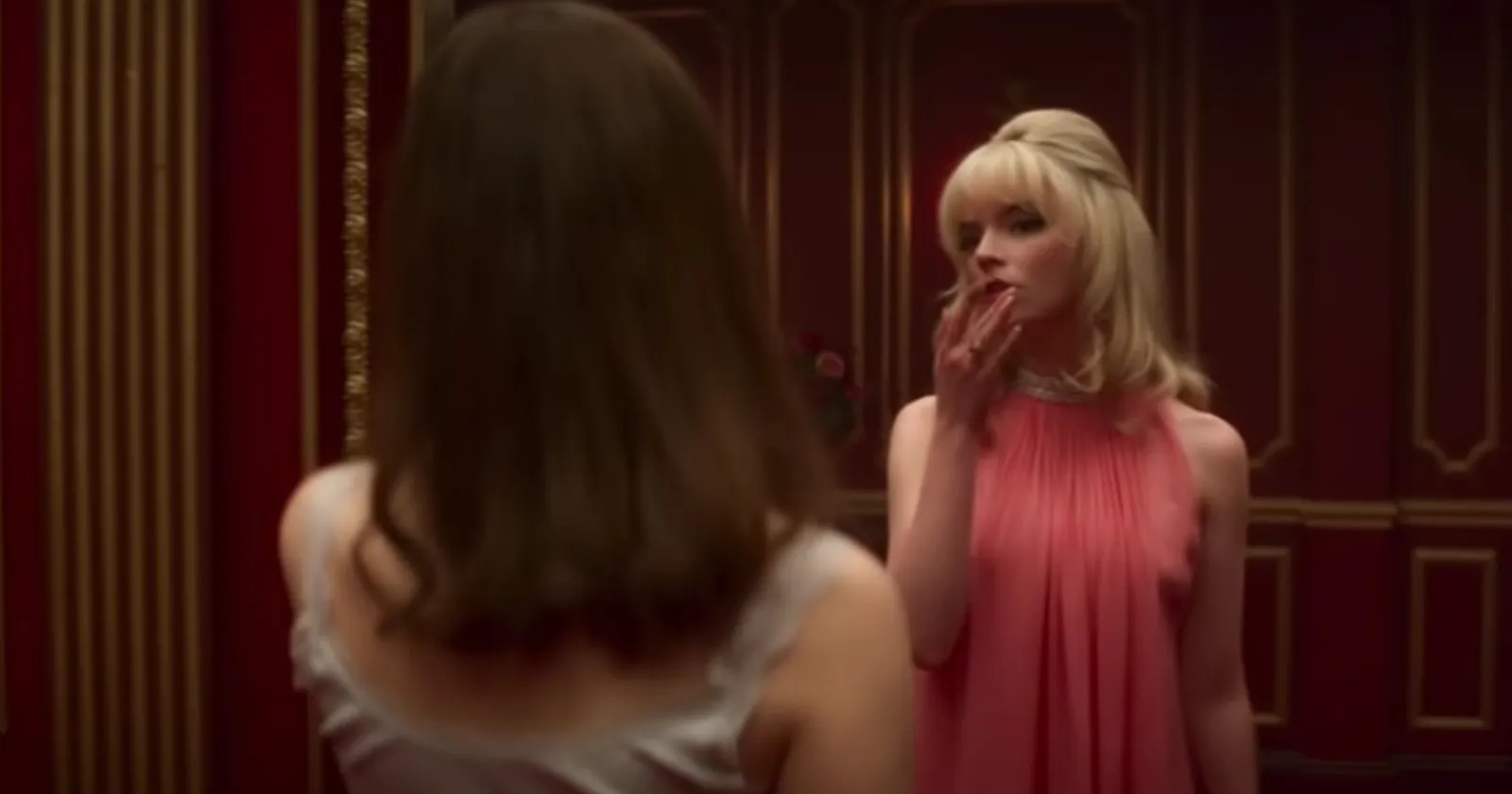Few directors are as defined by their style as Edgar Wright, and Last Night in Soho (2021) is a movie that thrives when it fully embraces that signature flair. From its bold lighting choices and meticulously curated soundtrack to the seamless fusion of past and present, this film is an exercise in aesthetic precision. Starring Thomasin McKenzie and Anya Taylor-Joy, it’s a visually dazzling, nostalgia-drenched psychological thriller that starts strong but ultimately falters in its final act.

The film follows Eloise (Thomasin McKenzie), a young fashion student with a deep admiration for 1960s London. After moving to the city, she mysteriously begins slipping into the past, experiencing life through the eyes of Sandie (Anya Taylor-Joy), a glamorous aspiring singer. At first, the experience is intoxicating—Eloise is swept up in the allure of a bygone era, reveling in the fashion, music, and atmosphere of Swinging London. But soon, the dream turns nightmarish, revealing a darker, more sinister reality lurking beneath the neon glow.
For much of its runtime, Last Night in Soho is an absolute joyride. Wright’s command of cinematography and music remains impeccable, creating an atmosphere that feels both haunting and seductive. The interplay between Eloise and Sandie is electrifying, thanks in large part to the powerhouse performances from McKenzie and Taylor-Joy. Their dual narrative keeps the mystery engaging, and Wright’s use of mirrors and dreamlike transitions adds a surreal, hypnotic quality to the storytelling.
But then the third act arrives, and the film starts to unravel. What begins as a stylish, time-bending thriller takes a sharp turn into more conventional horror territory, leaning on familiar genre tropes rather than subverting them. The twists feel predictable rather than revelatory, and certain supernatural elements don’t land as effectively as they should. Wright’s best films—whether it’s Shaun of the Dead, Hot Fuzz, or Baby Driver—succeed because they play with genre conventions while still feeling fresh and original. Here, Last Night in Soho feels like it loses its nerve in the final stretch, settling for something safer and more expected.
READ MORE REVIEWS: The Last Duel, The French Dispatch, The Green Knight
That being said, even when Edgar Wright doesn’t fully stick the landing, he still delivers an experience that’s more visually and thematically interesting than most films in the same space. The film’s stunning color palettes, period-accurate production design, and mesmerizing performances ensure that Last Night in Soho remains watchable, even when its narrative stumbles. It may not rank among Wright’s best, but it’s still a hypnotic, ambitious ride worth taking—especially for fans of his unique voice and style.
Score: 6/10
Last Night in Soho (2021)
- Cast: Thomasin McKenzie, Anya Taylor-Joy, Matt Smith, Rita Tushingham, Michael Ajao
- Director: Edgar Wright
- Genre: Horror, Mystery, Thriller
- Runtime: 116 minutes
- Rated: R
- Release Date: October 29, 2021